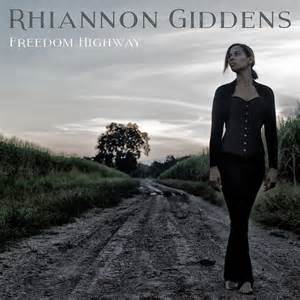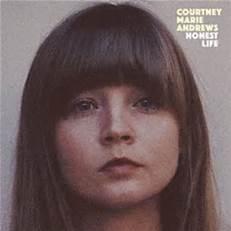Rating: 8.5/10
It’s taken me quite a few listens to put my feelings about this album into words. Even now, it’s one of the more difficult albums I’ve ever discussed, but it’s definitely worthy of discussion. For those unfamiliar with Rhiannon Giddens, she’s the wonderful voice on Eric Church’s “Kill a Word,” a song that speaks out against all the evil in the world, from racism to hate to loneliness. Giddens has also released an album of covers, but this is her first album of original material and my first exposure to her outside the Church song. The album she delivers is as complex in sound as it is in theme, taking us on a journey from the days of slavery to the Civil Rights movement to the racism and police violence of today. None of these are easy issues to address, but Giddens has brought us a record that can open our eyes and teach us much about our history, all in a way that is more observation than judgment, more storytelling than sermon, and at once grieved by the past but hopeful for the future.
The album opens with the slow-burning “At the Purchaser’s Option,” and right away, we are told the story of a slave whose owner has raped her; now she has a baby boy, and she can’t help but love him even though she knows someday he will be sold. It’s a great opener and sets the tone of the album well. Next is a cover of “The Angels Laid Him Away.” The acoustic instrumentation really allows Rhiannon’s voice to shine, and her ability to convey emotion is something that will be an ongoing highlight of the record. This is the first of several smart covers chosen for the album. “Julie” is a standout of the record; it’s another acoustic-driven track, this one another, more complicated slave narrative. Both Julie and her mistress sing here; it appears that they had a good relationship and may have even been in love, but Julie has found out the mistress has sold her children and leaves when the Union soldiers come. I applaud Rhiannon Giddens for recording a song as complex as this one.
Giddens does an excellent job with the cover of “Birmingham Sunday,” a song about the 1963 16th Street Baptist Church murder by the KKK. The perspective shifts to today’s issues with the funky “Better Get it Right the first Time.” This one is upbeat and somehow lighter on the surface in the midst of a dark album, but the lyrics are some of the most thought-provoking on the whole record. Giddens repeats the line, “Young man was a good man,” in between recounting the details of his life; he did his best to live right but went to one house party and ended up being shot by police. Rhiannon’s nephew, Justin Harrington, adds a rap to the song that elevates it, telling the story from the young man’s perspective. The conclusion is that for black Americans, there aren’t second chances, so “You better get it right the first time.” This is another highlight of the record. “We Could Fly” is another standout, speaking of the hope that comes after death and flying away from what the song calls “the bonds of earth.” It’s the opposite of “Better get it Right the first Time,” dark on the surface but one of the more uplifting tracks on a somber record.
Speaking of light moments, next is the fun, lighthearted “Hey BéBé.” I wouldn’t necessarily say it adds to the album, but it’s definitely catchy and serves as a break from the intensity. The horns in this are just cool. At the same time, as a song itself, it doesn’t stand out; it says more in the context of the album. “Come Love Come” is another slave narrative, this time about a slave couple waiting to be reunited. The woman waits for her lover in Tennessee. This is a solid song, but it doesn’t have the same impact as the other slave stories; I don’t know if it’s because this is the third one or if this one just doesn’t resonate as much as the others. The soulful “The Love we Almost Had” is another light moment about a love that could have been. This one works better than “Hey BéBé” as a diversion from the dark themes of the record because it is more understated, whereas “Hey BéBé” almost sticks out like a sore thumb. “Baby Boy” is my least favorite track; it’s another acoustic song about Mary watching over Jesus, or possibly also any mother watching over her son. It’s not a bad song, but it doesn’t add anything to the record. The instrumental “Following the North Star” follows, and I have to say, I think it would have been a nice prelude to “Julie,” but it works well here before the closer and title track, a cover of “Freedom Highway.” The album ends in more of a place of hope than it began, asserting that the quest for freedom is daily and ongoing.
This is a great piece of history and commentary, using storytelling to bring us a message that can’t be delivered by activists or preachers, but only through art. It’s an album that can teach us all something if we let it, and that’s one of the most compelling things about music. I will say that it is held back for me a little because it won’t hold up as well as other albums, especially the latter half. even the excellent front half won’t have the staying power of some other records because it’s not something you will probably pull out months later for some nice, relaxing music. But that’s not what this album was meant to do. It was meant to be respected more than enjoyed and to teach and preserve pieces of history in an effort to keep the same mistakes from occurring in the future. IN that regard, this record excels, and for that, Rhiannon Giddens should be praised.


